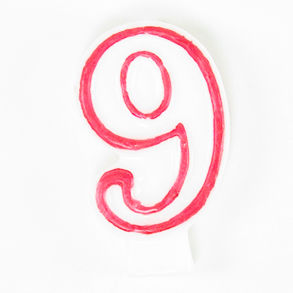In this week’s installment of our Monday blog series, we’ll be looking at the development of typical 9 and 10 year-old. These young students, are, well, not so young anymore and things really begin to change at this age. You may see great variation from child to child. For a 9 or 10 year-old who is learning (or has been learning) an instrument, the role of music in their lives can suddenly become much richer and more meaningful, and their approach to learning and self-discipline can evolve dramatically.
This age group is all about independence! Your 9 and 10 year-old is:
– Highly focused on friendships outside the family, especially same-gender friendships. They may develop a strong interest in group activities away from the family (team sports, clubs at school, etc.)
– Setting and working towards goals on their own. Your 9 or 10 year-old is likely becoming very focused on certain hobbies, activities or subjects that truly fascinate them. They want to learn absolutely everything about their favorite subjects, people, etc. They may also become very interested in collecting as an outlet for this fascination. This development of strong, long-term personal interests paired with an increased ability to focus on tasks and projects can result in enormous growth in your child’s ability to set, self-monitor and complete goals.
– Making independent decisions about right and wrong. Because of your 9 or 10 year-old’s increased focus on outside friends and the outside world, they are increasingly confronted with instances where they must make their own decisions about what the right action is in any given situation, and how they evaluate the actions of others. Unfortunately, this increased involvement in outside friendships can also come with peer pressure, and your child will need to be equipped to make the right choices on their own.
on outside friends and the outside world, they are increasingly confronted with instances where they must make their own decisions about what the right action is in any given situation, and how they evaluate the actions of others. Unfortunately, this increased involvement in outside friendships can also come with peer pressure, and your child will need to be equipped to make the right choices on their own.
How do these developments play out in music lessons?
– Your child can be responsible for their own practicing and for preparing for auditions or performances. Now is the time to instill a sense of independent responsibility in your child! Allow your child to take responsibility for weekly practice and for putting in the extra work needed for recitals or auditions. Some children will take to this responsibility naturally and others may take awhile to build up the discipline. Others may have to experience a little struggle or disappointment because of lack of preparation before they are motivated enough to take responsibility. As a parent, your role may be to allow them to be responsible for themselves while gently reminding them of the consequences of not preparing. Learning an instrument can go far in helping your child learn to be personally responsible. Their teacher will give them guidance and evaluation, but the child’s success will depend on their own independent work.
– Your child’s lessons and interest in music can provide them with positive role models and confidence: Your child is likely looking for role models everywhere at this age. They may develop a strong interest in particular celebrities who they may idolize. The role models they choose can have a big effect on how they deal with peer pressure and the values they stick to when faced with peer pressure or difficult moral and ethical decisions. Your child’s interest in music can be an excellent source for positive role models! Ask your child about the music and musicians they’re interested in, and learn a little more about them. Their favorite composer, singer, songwriter, guitarist, etc. could inspire them to be creative, unique, hard-working, committed, confident, brave and even compassionate (maybe he or she is involved with a particular charity, which can help show your child how to take a positive role in society). Even if your child’s favorite musician isn’t a saint, you may be able to emphasize their positive qualities for the child, while being honest about their less desirable qualities and how you feel about them. 9 and 10 year-olds are able to hold more complex views about people and their actions, so don’t be afraid of honest discussions about the musicians your child is looking up to. This will help them make these evaluations on their own more successfully.
One of the best weapons a child has against negative peer pressure is confidence! The better your child feels about themselves, the better their hold on their principles will be when they’re challenged. Use your child’s interest and successes in music as a natural confidence builder. Tell them they should be proud of themselves when they succeed, and reinforce all the hard work they did to get there.
Remember, your child’s music lessons can play an extremely positive role at this crucial time of change and independence, and you can help guide them to use music as a positive influence and source of confidence in their lives.
Sara R. Longwell, M.M.Ed, MT-BC
Community Relations Manager & Music Therapy Specialist
